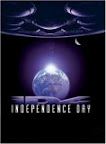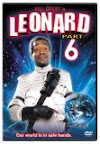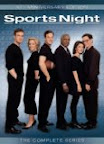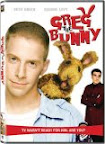Timing is key in a disaster movie, warm weather is the best season for this recipe, and I prefer to use July myself. Once you've picked your season, you should sprinkle liberally with timely relevance. I'm partial to social relevance, myself but many others prefer a ecological reference, while some even prefer to use mans own hubris (but be careful, too much hubris and your recipe become Science Fiction, completely missing the disaster flavors). Once your relevance has settled into shape, it's time to mix in your characters.
The Naive intellectual hero is always a crowd pleaser. A scientist, unlucky at love, but with a smile as wide as your box office returns is sure to please any crowd. Make sure that they are no artificial additives to your hero, such as fashion sense, or social graces. These artificial additives can be spotted by an audience at 50 paces; a true chef knows that it is best to rely on natural ingredients. Mix in your hero with a wire whisk; a spoon or fork will prevent them from rising to the challenge as the recipe heats up.
How do you fully appreciate a naive hero without a grizzled or experienced counterpart? This is when fashion sense and social graces come into play; the experienced counterpart (or the foil as some chefs call them) has everything in their flavor that the naive intellectual hero is missing. This is the flavor that brings out the flavor of the naive hero, without the experienced hero, the naive hero doesn't have the charm to endear themselves to millions of movie goers. Fold this character into the mix, as they are a more prominent flavor in the recipe and should not be over whelmed by the other flavors.
When you mix two extremes like this, you need a middle ground to cleanse the palate. Sprinkle gently with the driven idealist, gently, as this character reacts with both the naive hero and the experienced counter part. If you over use this character, it could tip the balance of tension too heavily in one direction. Best to kill this character off early into the story at a properly dramatic moment. This is a character best suited to blues guitar music and leather jackets that show some mileage to them. Driven idealists are best when smoked, Marlboro Reds are the preferred seasoning, but in a pinch Camel Unfiltered or cigar smoke will do just fine. If this character has a slight twitch, or is prone towards vulgarity, that will make the moments before their death all the more impressive.
The final necessary component is the outsider who emphasizes with the other characters. Many chefs use a military stock for this portion of the recipe, but others have improvised with safe crackers, career criminals, and religious icons. The key to this portion of the recipe is to cleanse the palate between flavors. A properly used outsider will play the naive hero off of the experienced counterpart, and produce a moment of comedy with the driven idealist. This is the flavor needed to make your recipe zing with your dinner guests. One would expect this character to come across as smooth and well blended but it is best to grate this character into the recipe, so that the audience can pick them out easily (remember what your producer thinks is heart warming, is grating to the audience).
Here are some examples of recipes that have worked out well for chefs in the past. Serve them up to your friends and see how you make do with them!

The Core
Aaron Eckhard stars in this receipe where the Earth's Core has stopped spinning. A hot saucy dish best served with breads and a spicy soup. Fans looking for real dialogue should stay far away from this dish.

Independence Day
A Will Smith July 4th barbecue recipe, always a crowd pleaser. Best served with apples, and a healthy dose of patriotism. Look for more guest stars then your party has guests, this is a heavily laden on recipe, best served with custard.

Godzilla
For those looking for an ethnic flare to their party, this Kaiju never fails to raise an eyebrow. A hot and spicy treat as common at summer barbeques as aunt Ethel's infamous ham Jell-O salad. But be careful, this dish tends to repeat itself on you.

Leonard, Part 6
Some chefs refuse to mention this Bill Cosby disastrous dish, but what summer barbeque is not complete without a dish dripping in rancid cheese? This is a dish best used sparingly, and only when you want your guests to vacate the property in haste. Truly, a cinematic disaster if there ever was one.
Bon appetite!






